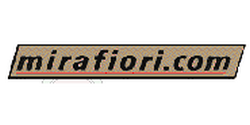Copy of `Mirafori - Suspension Workshop`
The wordlist doesn't exist anymore, or, the website doesn't exist anymore. On this page you can find a copy of the original information. The information may have been taken offline because it is outdated.
|
|
|
Mirafori - Suspension Workshop
Category: Travel and Transportation > Static and Dynamic car terms
Date & country: 04/09/2008, USA
Words: 17
|
Weight DistributionThis is the amount of weight on the front and rear axles expressed as percentages.
UndersteerWhen the front tires lose traction before the rear tires, a car is understeering. Instinctively, a driver will compensate for understeer simply by turning the steering wheel further. This makes understeer safer than oversteer for the average driver, so automobile manufacturers design this characteristic into their cars.
Unsprung WeightThis is the weight of a car that is not supported by suspension. Wheels, tires, brakes, hubs, etc. are unsprung weight. Suspension components such as control arms, anti-roll bars, shocks, and struts are a percentage sprung weight and a percentage unsprung weight. The actual percentage depends on the application.
Torque SteerFront-wheel drive cars have a tendency to pull to one side during acceleration, particularly noticeable during quick starts from a stop. Because the driveshafts are different lengths, the twist in them during acceleration is different causing one wheel to accelerate quicker than the other, making the car turn to one side.
Toe-In/Toe-OutToe is the dimensional difference of the distances between the front and rear edges of the wheels on an axle. If the front edges are closer than the rear edges, there is toe-in. Toe-out is when the rear edges are closer together.
Sprung WeightThis is the weight of a car that is supported by the suspension. The engine, body, interior, passengers, cargo, etc. are all sprung weight.
Roll SteerThis characteristic is the result of body roll at the rear suspension. Because the mounts (forward and rearward) are typically not at the same level above the road, as the wheels move up and down they also move forward and rearward. As the body rolls one wheel advances in front of the other, steering the car from the rear.
Roll CenterThis is an imaginary point about which the cars rotates while in a turn. Each axle has it's own roll center. The higher the roll center, the more tipsy the car will feel.
Ride HeightThis is the height above the road that the car sits.
OversteerWhen the rear tires lose traction before the front tires, a car is oversteering. Recovery from an oversteer situation must be quick since directional control can be lost.
Neutral SteerThis is the theoretic ideal steer characteristic when the front and rear tires lose traction at the same time.
DriftAs a car loses traction in a turn it moves toward the outside of the turn. This movement is called drift.
Center Of GravityThis is the imaginary point in a car where it would be exactly balanced if lifted by a hoist.
Counter SteerIf a car is torque steering to the left, turning the steering wheel to the right will maintain a straight line of travel. A car that is oversteering to the right can be brought back into line by turning the steering wheel to the left. In both cases the driver is counter steering to correct the car's direction of travel.
CasterThis is the angle of the steering axis as viewed from the side of the car. The axis may pass through upper and lower ball joints or the upper strut bushing and a lower ball joint. Be sure the wheels are pointed straight ahead when measuring this angle.
CamberThis is the angle of the rim/tire from vertical as viewed from the front or the rear of the car. Be sure the wheels are pointed straight ahead when measuring this angle.
Bump SteerThis happens when the suspension compresses, causing the control arms and tie-rods to move vertically. Because they differ in length and location, the result is the rim/tire being steered without any movement of the steering wheel. Cars having control arms and tie-rods parallel to the road will exhibit minimal bumpsteer.

